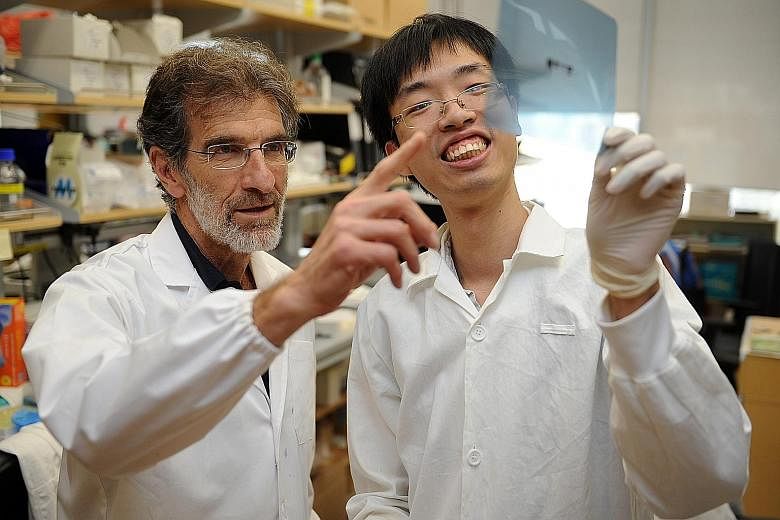A new multimillion-dollar effort to combat cancer could yield new ways to treat leukaemia, one of the deadliest forms of the disease here.
The effort comes in the form of a new $25 million RNA (ribonucleic acid) Biology Centre, run by the Cancer Science Institute of Singapore (CSI Singapore).
Funded by the Ministry of Education, the centre will bring together 15 researchers from various fields, including bioinformatics and genomics - a study of genes and their functions - from the National University of Singapore and other research institutions.
They will set their sights on developing ways to target RNA strands to inhibit cancer.
RNA is known to act as a messenger in the body, transferring instructions from DNA to produce proteins.
Recently, scientists have studied how RNA changes could lead to diseases.
So more centres focused on RNA biology have popped up in places such as the United States over the past few years, said Professor Daniel Tenen, director of CSI Singapore at NUS, who also heads the new centre here.
He led a team which, in 2013, published a paper on a way to reactivate genes that can suppress tumours, which are usually deactivated when patients get cancer.
The team found that introducing a specific class of RNA could switch these genes back on by binding with an enzyme in the cells.
The Singapore centre will build on such research to selectively target cancer cells and tailor the therapy to the patient.
For a start, research will focus on leukaemia, which is already a pet topic for a number of the researchers who have joined the centre.
Blood cancer samples are also more readily available as compared with other forms of cancers, which has allowed for the development of more advanced experimental techniques, said Prof Tenen.
For example, there are well-established ways to isolate different types of blood cells and manipulate them by adding and removing genes from them.
"As such research into RNA is relatively new, you want to pick an experimental system that you can work with fairly easily.
"You don't want to pick one that is difficult to manipulate," he said.
Graduate students from CSI Singapore will also get to dive into RNA research at the centre.
The centre will also create more opportunities for scientists studying RNA biology to interact as, sometimes, scientists doing similar research do not know of one another's existence.
"You might not know or you might have a vague idea.
"But when we have common laboratory meetings when somebody presents, you may go 'Hey, that's someone I could collaborate with'," said Prof Tenen.
"In a way, it makes people work together."

